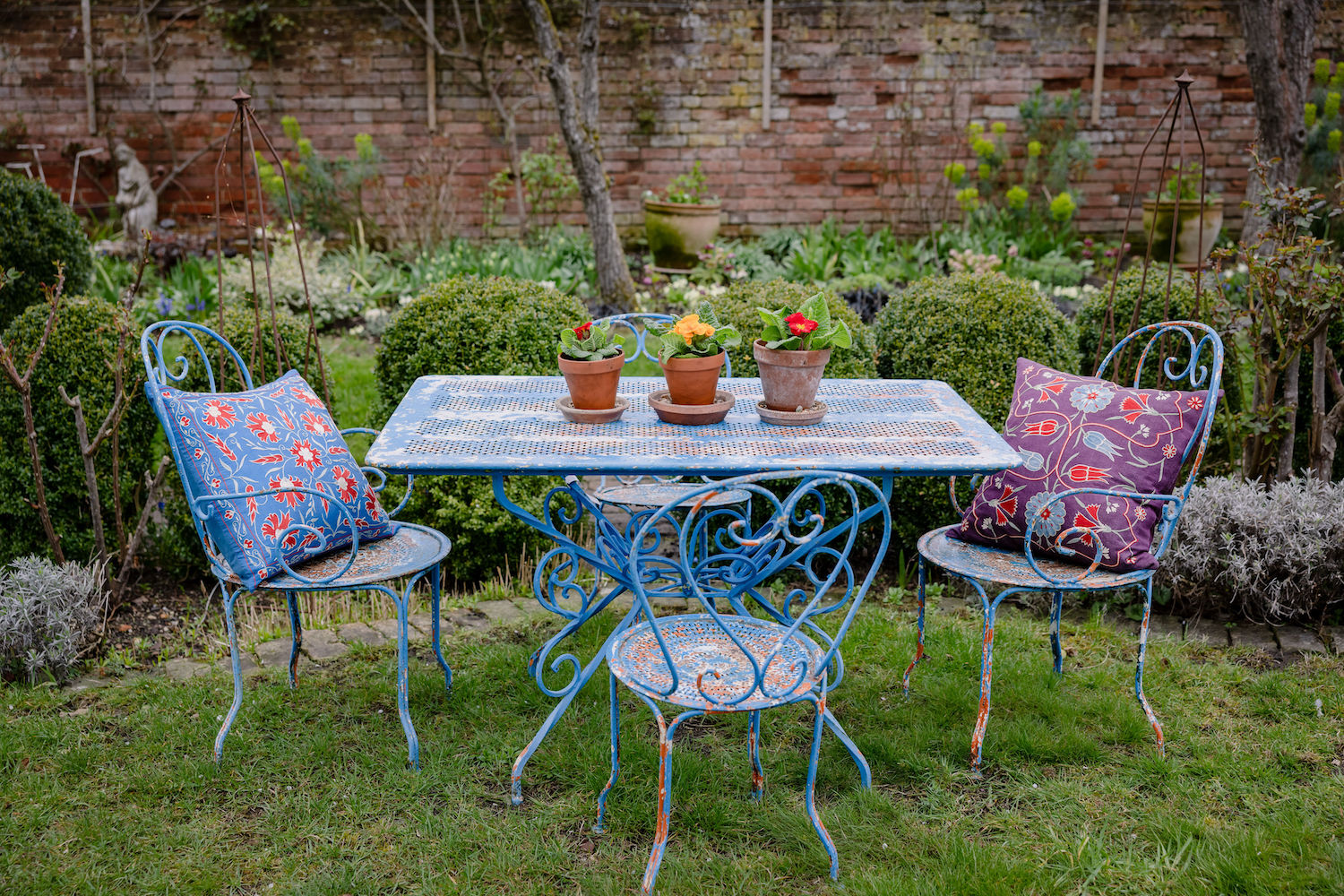Antiques Trade Talks – The Boule-in
 The Boule-in is a French decorative antiques business set up in 2012 by husband and wife team Cathy and Peter Bullen when they returned to UK after a three-year work séjour in Provence. The pair sells authentic, design-led, antique, vintage and mid-century French and European furniture and functional collectables through a series of curated seasonal Fête events hosted from their home and garden in Suffolk – find out more www.boule-in.co.uk.
The Boule-in is a French decorative antiques business set up in 2012 by husband and wife team Cathy and Peter Bullen when they returned to UK after a three-year work séjour in Provence. The pair sells authentic, design-led, antique, vintage and mid-century French and European furniture and functional collectables through a series of curated seasonal Fête events hosted from their home and garden in Suffolk – find out more www.boule-in.co.uk.
The Boule-in’s upcoming spring event Fête du Printemps will run from March 23 to April 1 (excluding Easter Sunday) in Bildeston, Suffolk

What is the unique appeal of antiques to you
The unique appeal of antiques must be the fact that by definition each piece is unique! Every antique piece has been pre-loved by a previous owner and holds its history and charm through the evidence of its long lived life.
What areas/items are currently selling well?
We sell a huge variety of styles and époques, which makes for a varied customer base. At the moment the clean lines of Art Deco and Mid-century is on-trend, particularly with the young. Another consideration can be limited space in 21st-century accommodation so we’re finding it’s a huge asset for furniture and collectables to be functional as well as decorative. We are always on the look out for pieces people can use when sourcing our latest collections.

Which items are the ones to watch/future sellers?
Personally we believe that quality always counts: decorative trends come and go but beautiful, authentic, design pieces in good condition will always sell. Trends seem to turn in a 50-60year cycle, so perhaps we’ll see the return of ’90’s chateau-chic (but definitely without the shabby!)
 What antiques do you have at home/collect and why?
What antiques do you have at home/collect and why?
Just like the collections we sell, our home is full of an eclectic mixture of the pieces we love. We’ve mixed inherited furniture, English and French, 18th century and 19th century, alongside the 20th-century pieces we’ve more recently collected while sourcing new stock (just occasionally it’s impossible to part with pieces we’ve found!). Our home is always evolving alongside our decorative taste as is our research into a greater knowledge for the French antique styles we love so much.
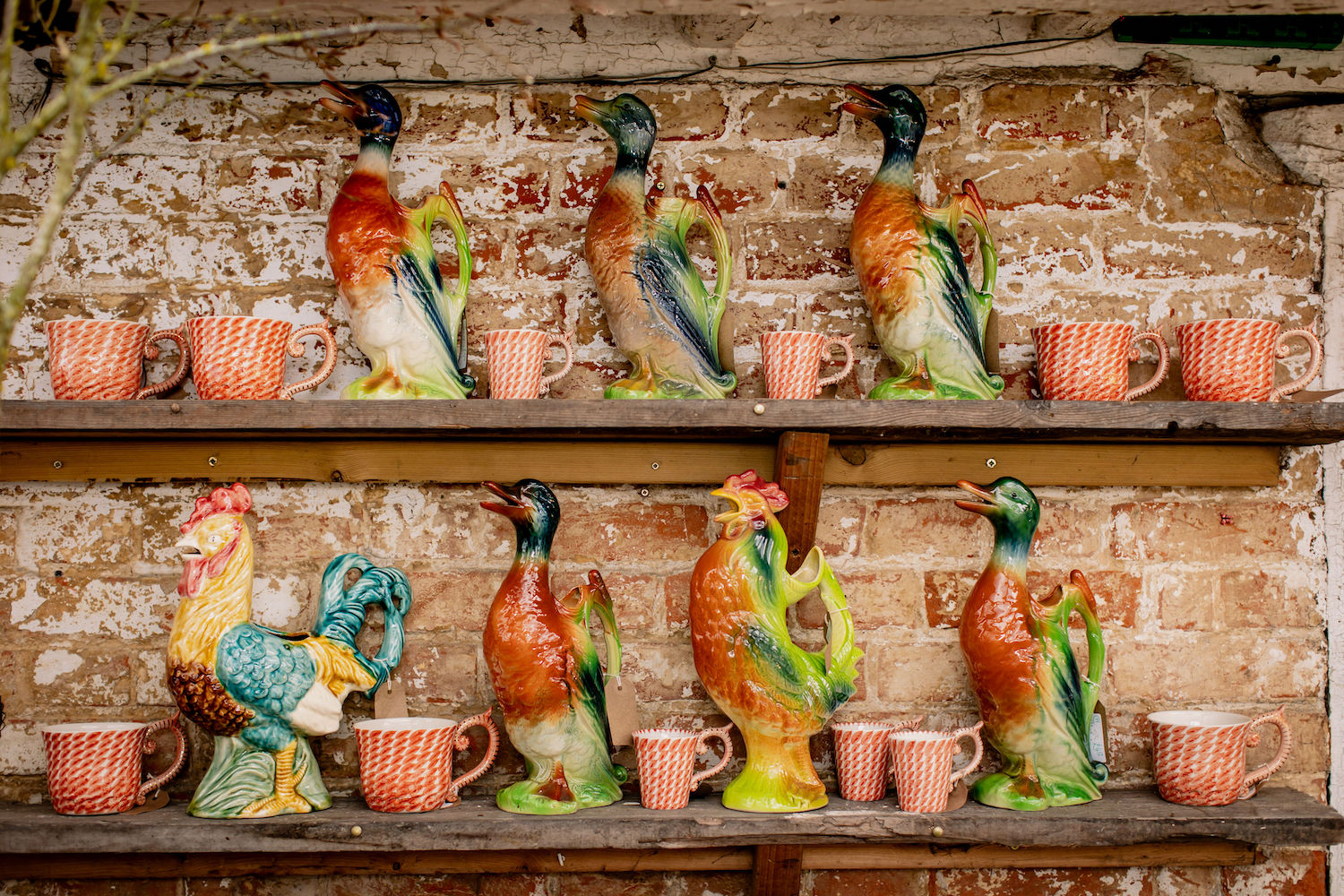
What do you think will be the antiques of the future?
Antiques of the future will be those 21st-century artisan pieces that survive our present throw-away society. So much furniture is mass produced now and poor quality and has a short lifespan so people are frequently changing styles and throwing out. Find those stylish, functional, quality 21st-century pieces and treasure them now… They’ll be worth lots of money one day!
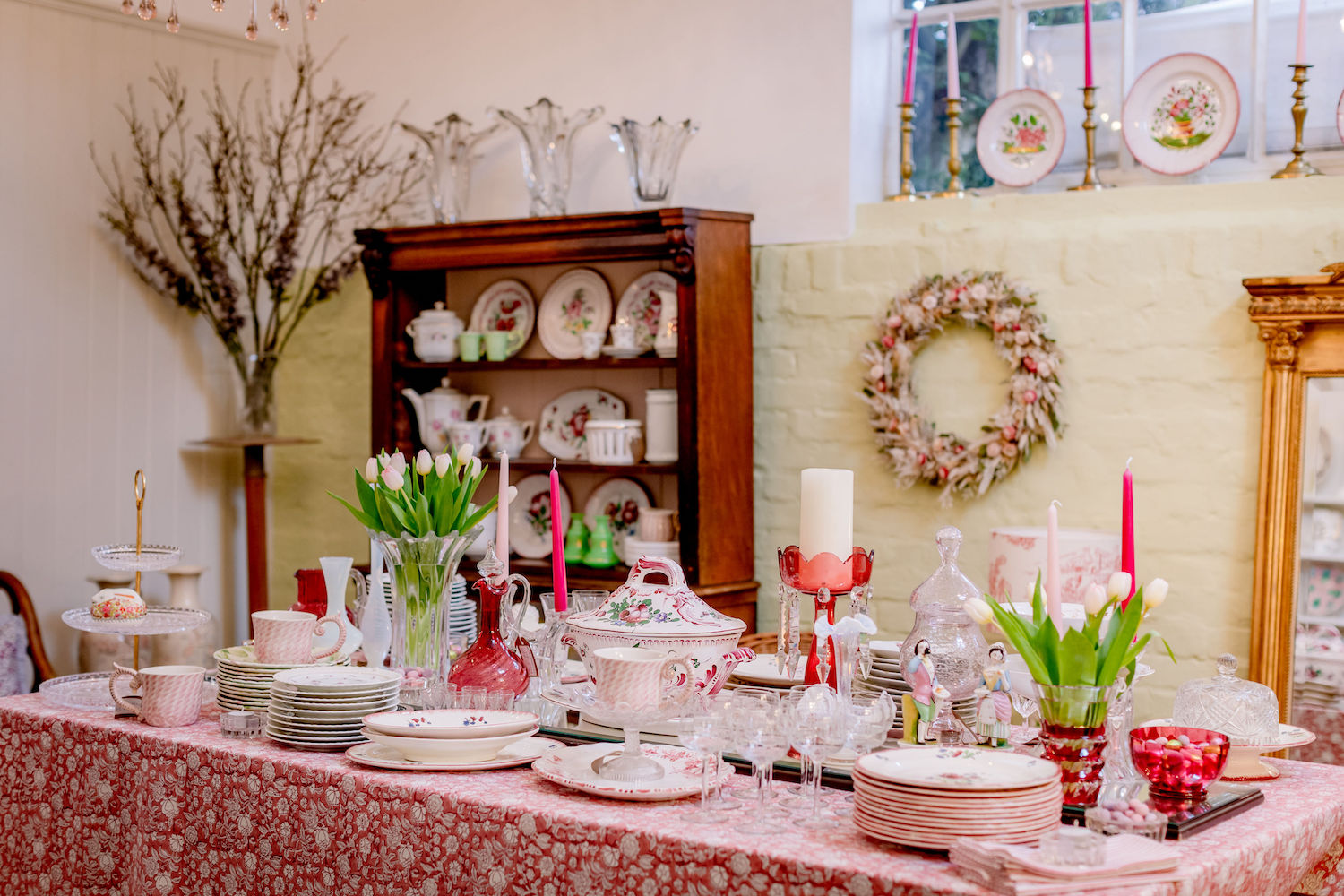
How is the industry changing and are you optimistic for its future?
We’re optimistic by nature and the key is to work with change and try and offer what people are searching for. With so much on-line shopping we believe people want a unique shopping experience. Our antique business is largely based on the Decorative French Fêtes we hold at home, which are an immersive, theatrical experience for our customers who find themselves immediately transported to Provence. By showcasing our newly-sourced collections through a series of curated rooms we aim to show how antique/midcentury pieces can be integrated into modern 21st-century homes.
Is new technology good for the trade and buyers/collectors?
The advancements in technology are certainly good for the antique trade as it provides greater exposure for products over the internet – however, nothing can ever replace seeing, feeling and holding an antique piece in the flesh. There’s an innate understanding and knowledge of antiques that can only come about through handling objects and a great pleasure in finding something you can feel is good.
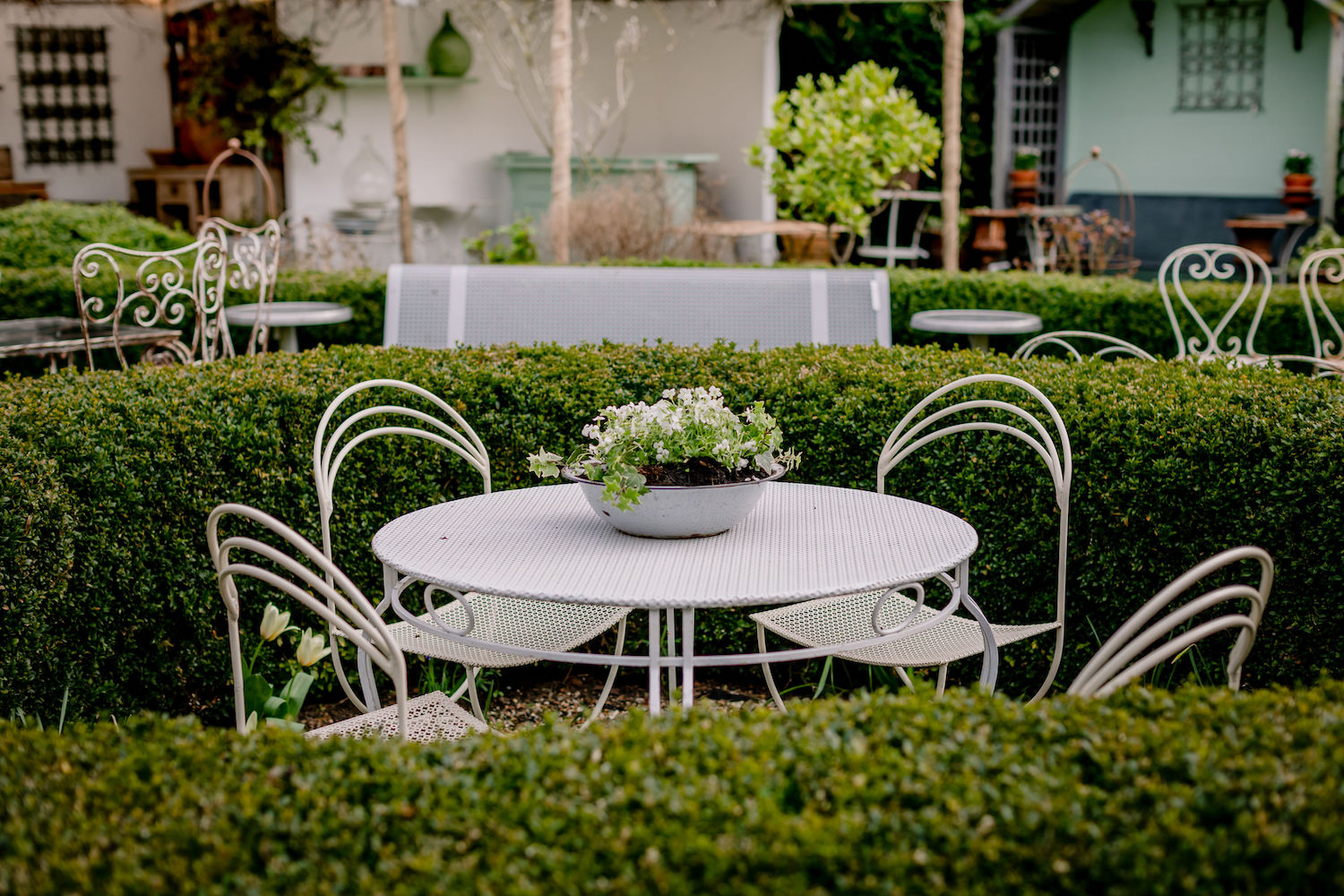
Tell us some trade secrets – what key questions should buyers ask?
Provenance is key – so always try to authenticate an antique piece by finding out as much information as you can about it and wherever possible get certified proof of the story. We pride ourselves that we personally source all our collections in Provence, so we’re already a direct link in the chain of the piece’s history. Building long-term relationships with dealers is another great asset as trust and respect comes into the partnership and you have a good idea that their information is reliable.
What antiques/artworks would you buy if money were no object?
Oh, wow! There are numerous responses to this question! One of the great joys of being an antique dealer is that you can buy treasures you can’t afford to actually keep – so you’re a custodian of something wonderful and can enjoy owning it even if only for a very short while. We love French glass – living part time in Provence means we’re in close proximity to the great Biot Verriere and regular trips to its museum, as well as watching its artisans at work mean this passion continues to grow: I’d probably buy a beautiful piece of rare Lalique and keep it where I could see the light illuminate it’s unparalleled craftsmanship.
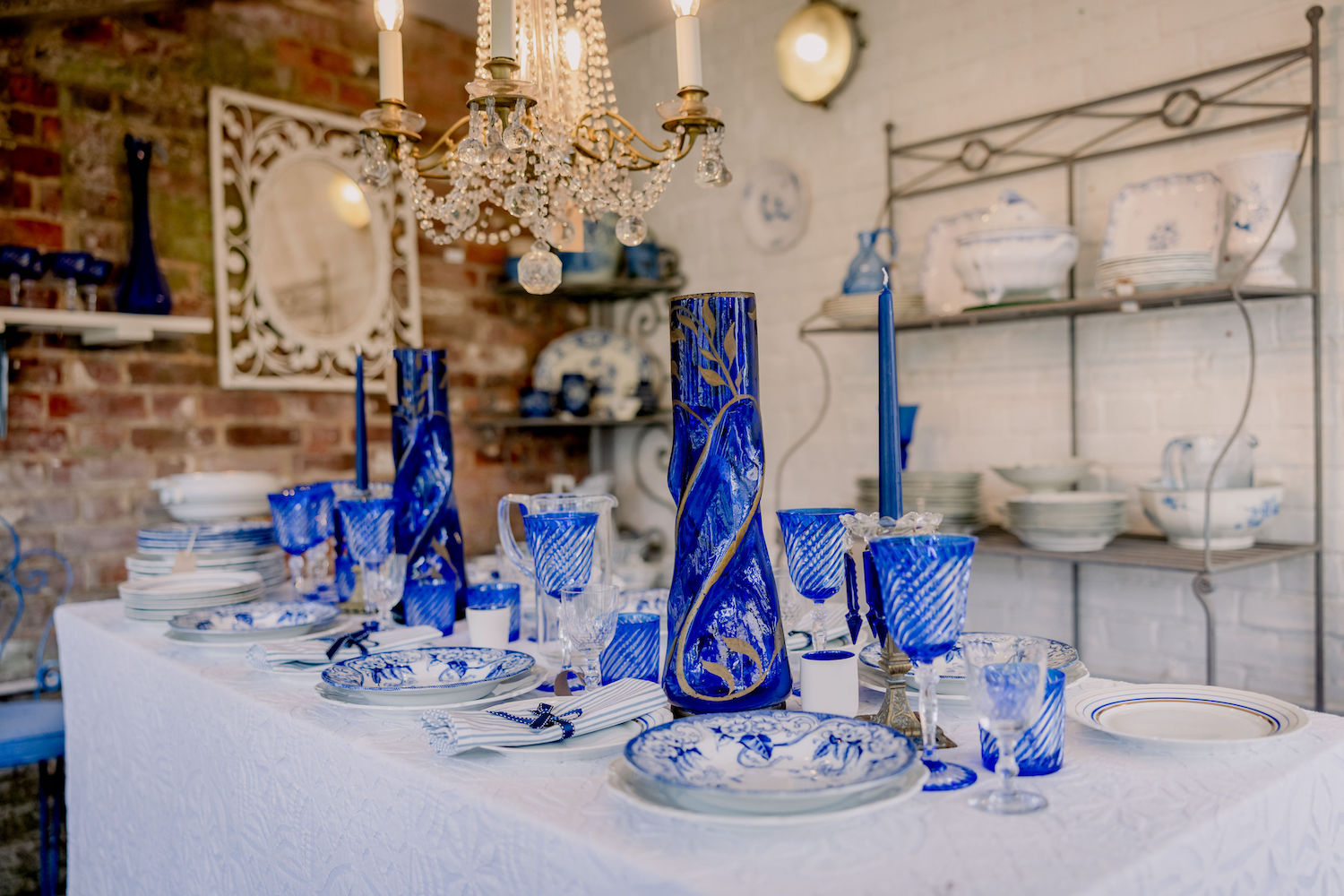
You’re down to your last 50 quid – what antiques/art would you buy?
Again it would probably be a piece of French artisan glass or pottery. We always look carefully into the work that’s gone into crafting an antique – it’s a great way to spot a treasure and to value a piece. Lots of beautiful, intricate French glass and ceramic work goes undetected so it’s possible to find something really lovely to treasure for not a lot of money.
Where are your favourite antique hunting destinations and why?
As we’re French antique specialists our hunting grounds are all in the South of France. This makes for a wonderful experience winter and summer as we try to embrace the entire adventure, travel, food and the people we meet. We regularly visit the brocantes and vide greniers of Hyéres, Toulon and Marseille as well as Cogolin and St Tropez… They’re all authentic brocantes which produce well priced, local artisanal antiques – as long as you make it clear you’re not a tourist browsing!
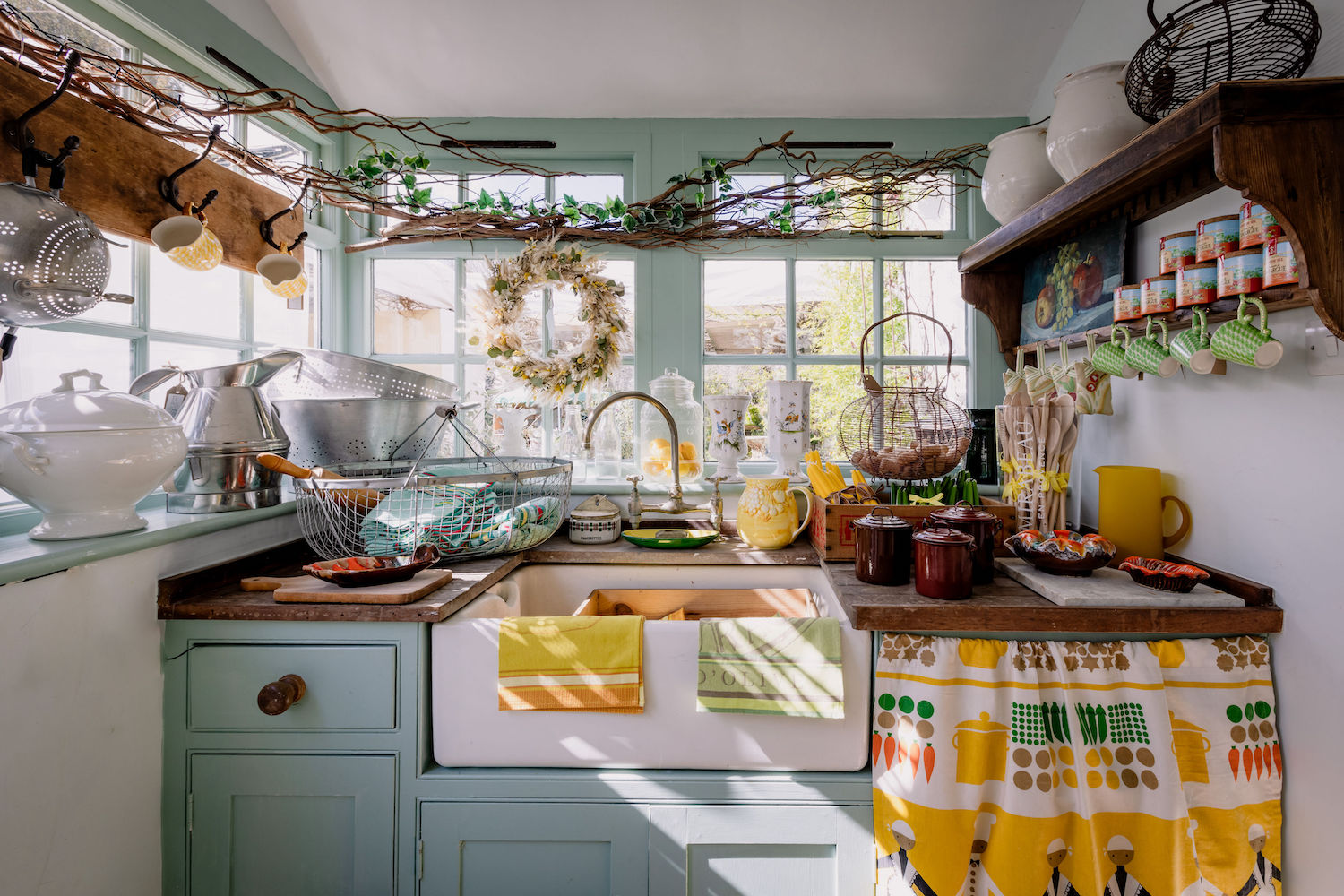
What are some of the biggest mistakes that buyers make?
Everyone in the antiques trade has made mistakes at some point in their career – and not always only at the start. Knowledge is obviously power when buying as you are less likely to be sold a fake, however beware of over confidence. We’ve certainly made mistakes when bartering for a ‘bulk buy’ believing we’ve found ourselves a bargain but not always checking each piece out carefully enough. It’s easy to overlook a chip or potential damage when you’re trying to get the price of a collection down.
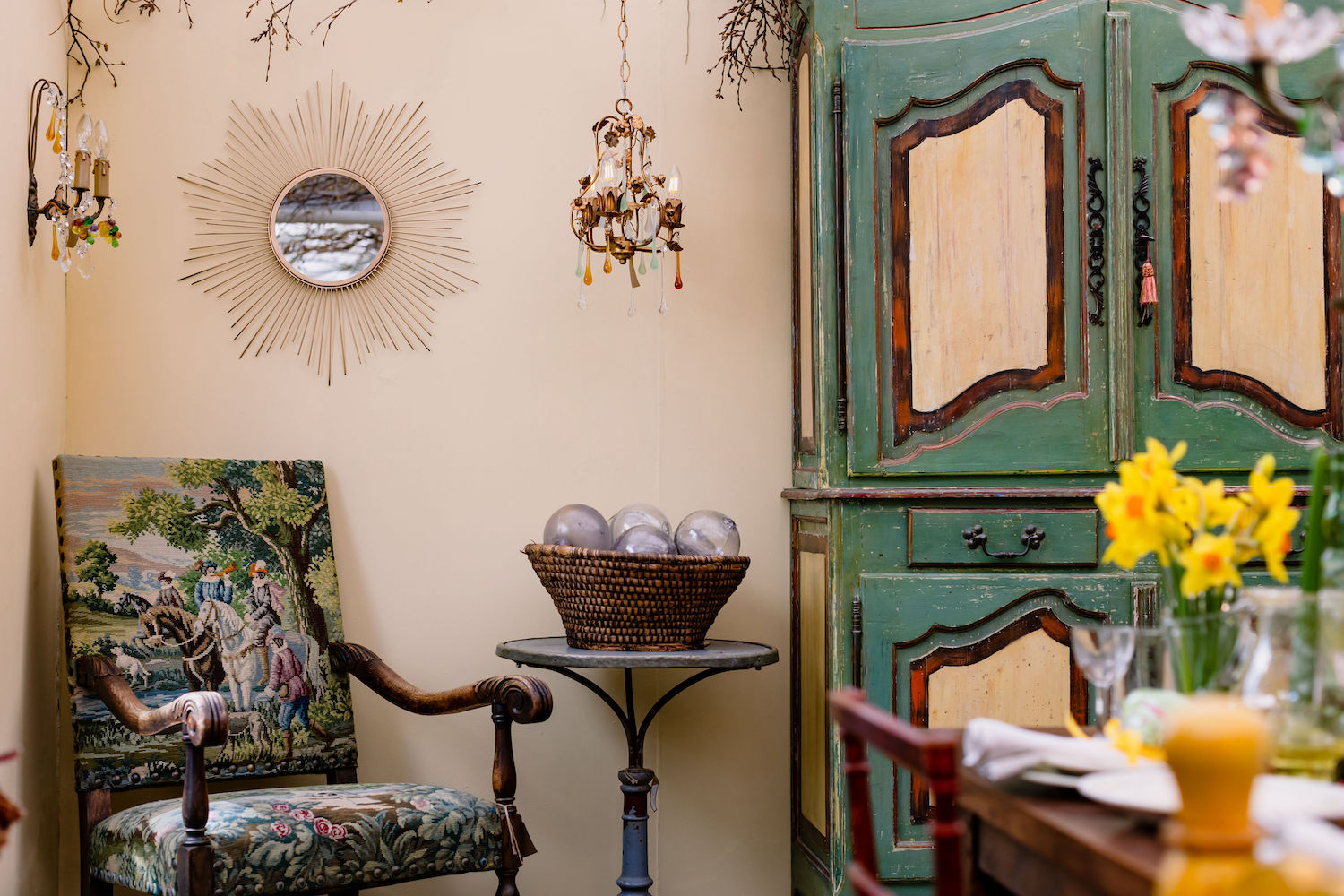
What do you consider the high point of your career in antiques?
Silly as it may sound, a great highlight in our antiques career was finding a signed Dali ‘Eprouve Artiste’ original print when rummaging through a pile of pictures at a local vide grenier. We were initially attracted to it’s bright palette and not considering it’s authenticity offered a couple of euros! We’ll never sell it so it’s value is immaterial, but the experience of it’s discovery was exhilarating.
Are antiques attracting younger buyers? If not, how can the industry reach out to them?
We are constantly delighted by the young audience our French Fêtes attract. An awareness of the environment and a desire to live sustainably has made buying ‘preloved’ vintage and antique pieces increasingly popular. The young still want to furnish their homes with à la mode style so it’s important to be aware of decorative trends and to ensure the antique pieces they buy are of good quality so they’ll come again. Give information to young customers about the piece they’re purchasing – it adds another facet to the experience and hopefully a spark that will inspire them further.
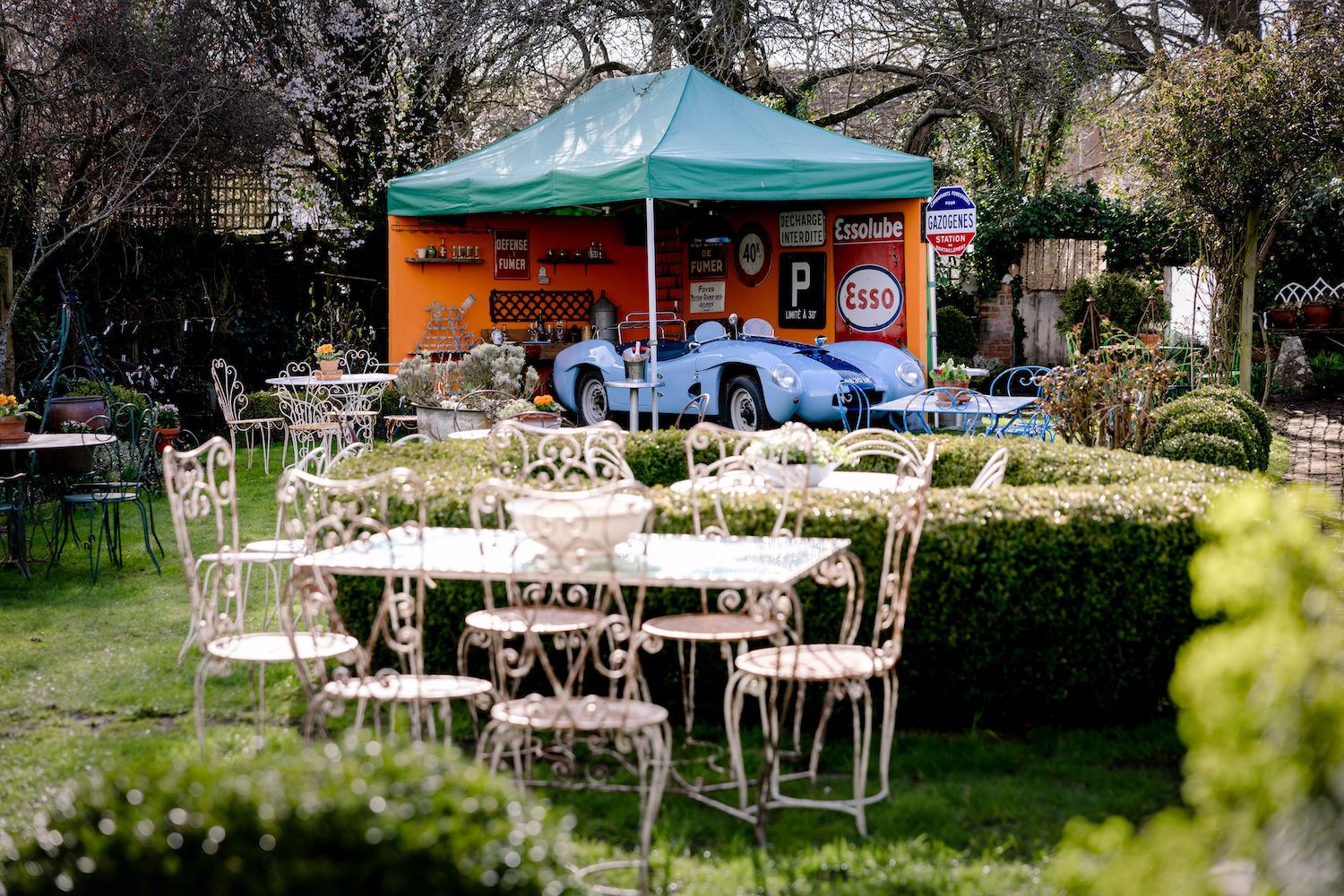
What advice would you give to people new to antiques and who want to learn more?
Firstly we’d encourage any aspiring antique buyer to go out and find their passion – what epoch, style and field of furniture or artworks do they like best? Find what you love and then immerse yourself in that genre – read, research, find and feel… It’s a fabulous life!
